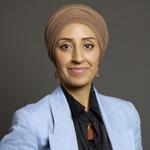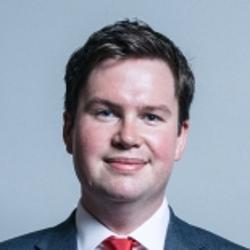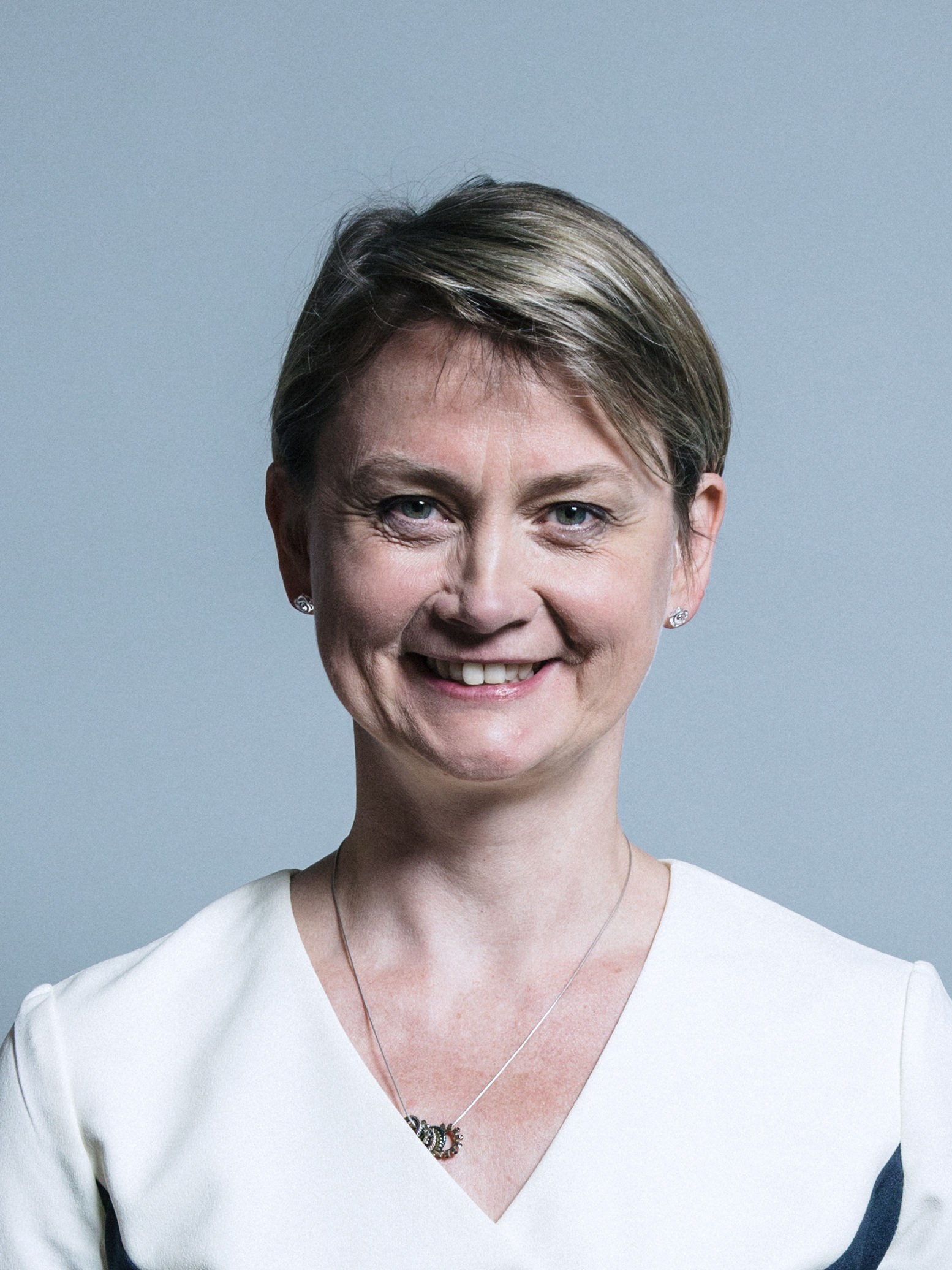Foreign, Commonwealth & Development Office
We pursue our national interests and project the UK as a force for good in the world. We promote the interests of British citizens, safeguard the UK’s security, defend our values, reduce poverty and tackle global challenges with our international partners.
Shadow Ministers / Spokeperson
Liberal Democrat
Lord Purvis of Tweed (LD - Life peer)Liberal Democrat Lords Spokesperson (Foreign and Commonwealth Affairs)
Calum Miller (LD - Bicester and Woodstock)
Liberal Democrat Spokesperson (Foreign Affairs)
Conservative
Priti Patel (Con - Witham)Shadow Secretary of State for Foreign, Commonwealth and Development Affairs
Green Party
Ellie Chowns (Green - North Herefordshire)Green Spokesperson (Foreign Affairs)
Junior Shadow Ministers / Deputy Spokesperson
Conservative
Lord Callanan (Con - Life peer)Shadow Minister (Foreign, Commonwealth and Development Office)
Wendy Morton (Con - Aldridge-Brownhills)
Shadow Minister (Foreign, Commonwealth and Development Office)
Ministers of State
Stephen Doughty (LAB - Cardiff South and Penarth)Minister of State (Foreign, Commonwealth and Development Office)
Parliamentary Under-Secretaries of State
Lord Collins of Highbury (Lab - Life peer)Parliamentary Under-Secretary (Foreign, Commonwealth and Development Office)
Hamish Falconer (Lab - Lincoln)
Parliamentary Under-Secretary (Foreign, Commonwealth and Development Office)
Seema Malhotra (LAB - Feltham and Heston)
Parliamentary Under-Secretary (Foreign, Commonwealth and Development Office)
Chris Elmore (Lab - Bridgend)
Parliamentary Under-Secretary (Foreign, Commonwealth and Development Office)
Commons Chamber
16:19
Although China is the UK’s fifth largest trading partner, the UK Government has, in recent years, described China as an …
To ask the Secretary of State for Foreign, Commonwealth and Development Affairs, what recent discussions she has had with international …
This Order approves the making of payments on behalf of the Government of the United Kingdom to the Caribbean Development …
A Bill to make provision for and in connection with the implementation by the United Kingdom of the Agreement under …
19:47
News and Communications
Foreign, Commonwealth & Development Office Commons Appearances
Oral Answers to Questions is a regularly scheduled appearance where the Secretary of State and junior minister will answer at the Dispatch Box questions from backbench MPs
Other Commons Chamber appearances can be:- Urgent Questions where the Speaker has selected a question to which a Minister must reply that day
- Adjornment Debates a 30 minute debate attended by a Minister that concludes the day in Parliament.
- Oral Statements informing the Commons of a significant development, where backbench MP's can then question the Minister making the statement.
Westminster Hall debates are performed in response to backbench MPs or e-petitions asking for a Minister to address a detailed issue
Written Statements are made when a current event is not sufficiently significant to require an Oral Statement, but the House is required to be informed.
Most Recent Commons Appearances by Category
Bills currently before Parliament
Foreign, Commonwealth & Development Office does not have Bills currently before Parliament
Acts of Parliament created in the 2024 Parliament
Foreign, Commonwealth & Development Office has not passed any Acts during the 2024 Parliament
Foreign, Commonwealth & Development Office - Secondary Legislation
Petitions
e-Petitions are administered by Parliament and allow members of the public to express support for a particular issue.
If an e-petition reaches 10,000 signatures the Government will issue a written response.
If an e-petition reaches 100,000 signatures the petition becomes eligible for a Parliamentary debate (usually Monday 4.30pm in Westminster Hall).
(7,342 in the last 7 days)
(121 in the last 7 days)
(101 in the last 7 days)
(93 in the last 7 days)
(101 in the last 7 days)
(26 in the last 7 days)
(7,342 in the last 7 days)
(8 in the last 7 days)
Petition Closed
Urgently fulfil humanitarian obligations to Gaza
Gov Responded - 8 Aug 2025 Debated on - 24 Nov 2025closed 6 months, 1 week ago
Act to ensure deliverer of fuel, food, aid, life saving services etc. We think this shouldn't be dependant/on condition of Israeli facilitation as the Knesset voted against UNWRA access to Gaza. We think if military delivery of aid, airdrops, peacekeepers etc, are needed, then all be considered.
Departmental Select Committee
Foreign Affairs Committee
Commons Select Committees are a formally established cross-party group of backbench MPs tasked with holding a Government department to account.
At any time there will be number of ongoing investigations into the work of the Department, or issues which fall within the oversight of the Department. Witnesses can be summoned from within the Government and outside to assist in these inquiries.
Select Committee findings are reported to the Commons, printed, and published on the Parliament website. The government then usually has 60 days to reply to the committee's recommendations.
11 Members of the Foreign Affairs Committee

Foreign Affairs Committee Member since 11th September 2024

Foreign Affairs Committee Member since 21st October 2024

Foreign Affairs Committee Member since 21st October 2024

Foreign Affairs Committee Member since 21st October 2024

Foreign Affairs Committee Member since 21st October 2024

Foreign Affairs Committee Member since 21st October 2024

Foreign Affairs Committee Member since 28th October 2024

Foreign Affairs Committee Member since 28th October 2024

Foreign Affairs Committee Member since 16th December 2024

Foreign Affairs Committee Member since 16th December 2024

Foreign Affairs Committee Member since 27th October 2025
Foreign Affairs Committee: Upcoming Events
The situation in Ukraine
9 Feb 2026, 1 p.m.
View calendar - Save to Calendar
Foreign Affairs Committee: 17 Current Inquiries
Foreign Affairs Committee: Previous Inquiries
50 most recent Written Questions
(View all written questions)The UK was one of the first countries to step up with lifesaving assistance for Mozambique. We delivered a £2 million increase in humanitarian funding, building on earlier action in 2025 to help communities prepare for increasingly frequent climate-related disasters. This support enabled the deployment of a specialist UK International Search and Rescue team, which saved dozens of lives, and helped provide emergency sanitation and health support to those most in need through local partners. The Minister of State for Development has just returned from Mozambique and saw first-hand the impact of the UK's flexible and rapid response to the crisis.
We have not had any direct ministerial engagement with Zimbabwe or South Africa on this matter, but we continue to monitor the situation closely.
Parliamentary Under-Secretary (Foreign, Commonwealth and Development Office)
The allocations in question will be set out in the coming months, and we will confirm details of that planned announcement in the normal way in due course.
Minister of State (Development)
The table below shows UK ODA funding in 2023 and 2024 provided to the International Committee of the Red Cross, International Federation of Red Cross and Red Crescent Societies, and National Red Cross and Red Crescent Societies. The figures do not capture funding to Red Cross/Red Crescent Movement organisations where they are a partner further down the delivery chain.
Organisation | 2023 £ thousand | 2024 £ thousand |
International Committee of the Red Cross | 130.2 | 176.6 |
International Federation of Red Cross and Red Crescent Societies | 17.7 | 17.6 |
National Red Cross and Red Crescent Societies | 0 | 4.7 |
Total | 147.9 | 198.9 |
Figures for 2025 will be published in due course.
Minister of State (Development)
The Supreme Court decision concerned the definition of a woman in the context of the UK Equality Act 2010.
If the Noble Baroness wishes to specify the UK-EU programmes that she has in mind, I will be happy to examine whether her question arises in relation to those programmes.
Minister of State (Development)
I refer the Hon Member to the answer given on 1 August 2025 to the question HL9684.
Minister of State (Development)
The UK remains deeply concerned by reports of human rights abuses in Pakistan, including in Balochistan. Advocating for civil and political rights is a core part of the UK's diplomatic engagement with Pakistan. To that end, I raised human rights issues on several occasions with Pakistan's Interior and Human Rights Ministers and Deputy Prime Minister last year. Our High Commission in Islamabad also regularly engages on these issues with the Government of Pakistan at the highest levels, as well as supporting a variety of UK-funded programmes promoting human rights in Pakistan. We will continue to urge the Government of Pakistan to guarantee the rights of all people in Pakistan in accordance with its constitution and international standards.
Parliamentary Under-Secretary (Foreign, Commonwealth and Development Office)
Claire Hanna
(Social Democratic & Labour Party - Belfast South and Mid Down)
I refer the Hon Member to the Foreign Secretary's statement to the House on 13 January, and to my responses in the Urgent Question debate on 19 January.
Parliamentary Under-Secretary (Foreign, Commonwealth and Development Office)
I refer the Hon Member to my written ministerial statement on 28 January.
Parliamentary Under-Secretary (Foreign, Commonwealth and Development Office)
I refer the Noble Lord to the answer provided on 4 April 2025 to Question HL6121, and to the subsequent statement made to the House by Baroness Anderson of Stoke‑on‑Trent on 26 January setting out the decision taken by the Secretary of State for the Ministry of Housing, Communities and Local Government (MHCLG).
We have been clear throughout that the planning decision was for the Secretary of State at MHCLG to make in an independent, quasi-judicial capacity.
While it has been clear for a number of years that we need to rebuild our own Embassy in Beijing, which is in a poor condition and not suitable for managing a diplomatic relationship with a country as consequential to UK and global interests as China, that cannot be, and has not been, factored into this planning decision by the Secretary of State at MHCLG.
Minister of State (Development)
I refer the Hon Member to the answers given to Question 907375 on 20 January, Question 77510 on 15 October 2025, and Question 74580 on 17 September 2025.
Parliamentary Under-Secretary (Foreign, Commonwealth and Development Office)
Foreign, Commonwealth and Development Office officials are working closely with international partners on this issue, as well as broader human rights concerns in Afghanistan. Officials consistently raise human rights concerns with the Taliban and urge them to reverse their inhuman restrictions. We continue to support the UN Special Rapporteur and his mandate to document human rights abuses in Afghanistan. Upholding human rights is not only a moral imperative but also essential for building a stable, inclusive and prosperous country for all Afghans.
Parliamentary Under-Secretary (Foreign, Commonwealth and Development Office)
I refer the Hon Member to the answer provided on 12 November 2025 to Question 85800.
Parliamentary Under-Secretary (Foreign, Commonwealth and Development Office)
I refer the Hon Member to the answer provided on 12 November 2025 to Question 85800.
Parliamentary Under-Secretary (Foreign, Commonwealth and Development Office)
I currently have nothing further to add to the previous answer to which the Hon Member refers in his question. As and when there is further information to report on this matter, I will update him and other Members accordingly.
Parliamentary Under-Secretary (Foreign, Commonwealth and Development Office)
I refer the Hon Member to the answer provided on 12 January in response to Question 103187.
Parliamentary Under-Secretary (Foreign, Commonwealth and Development Office)
I refer the Hon Member to the statement to the House I made on 5 January, and to the joint statement issued by the Foreign Secretary and several of her counterparts on 30 December, available on GOV.UK here: https://www.gov.uk/government/news/jointstatementon-the-gaza-humanitarian-response. My officials continue to engage closely with Médecins Sans Frontières on this issue.
Parliamentary Under-Secretary (Foreign, Commonwealth and Development Office)
Mike Wood
(Conservative - Kingswinford and South Staffordshire)
The Foreign, Commonwealth and Development Office (FCDO) already publishes quarterly transparency data on the external meetings held by the department's permanent under secretaries, directors general, and finance and commercial directors. Publishing comprehensive lists of all the external meetings held by every member of FCDO staff based in the UK and overseas could only be done at disproportionate cost.
Parliamentary Under-Secretary (Foreign, Commonwealth and Development Office)
In November 2025, I announced our intention to impose a maritime services ban on Russian liquefied natural gas (LNG), cutting off access to UK services which facilitate these exports globally. The measure will be introduced this year and come into full effect at the end of the year. We have already taken strong action on Russian LNG, sanctioning 16 vessels to date as well as the Beihai LNG import terminal in China and Russia's flagship Arctic LNG2 project - which is now severely disrupted. In addition to the ban on Russian LNG imports to the UK which took effect in 2023, these actions demonstrate the UK's clear commitment to taking Russian energy off the market to reduce the Kremlin's revenue.
Minister of State (Foreign, Commonwealth and Development Office)
In November 2025, I announced our intention to impose a maritime services ban on Russian liquefied natural gas (LNG), cutting off access to UK services which facilitate these exports globally. The measure will be introduced this year and come into full effect at the end of the year. We have already taken strong action on Russian LNG, sanctioning 16 vessels to date as well as the Beihai LNG import terminal in China and Russia's flagship Arctic LNG2 project - which is now severely disrupted. In addition to the ban on Russian LNG imports to the UK which took effect in 2023, these actions demonstrate the UK's clear commitment to taking Russian energy off the market to reduce the Kremlin's revenue.
Minister of State (Foreign, Commonwealth and Development Office)
I refer the Hon Member to the answer provided on 19 January 2025 to Question 105729. Discussions on non-British nationals detained in US facilities are a matter for the US authorities and the nations of those detained.
Minister of State (Foreign, Commonwealth and Development Office)
I refer the Hon Member to the answer provided on 19 January 2025 to Question 105729. Discussions on non-British nationals detained in US facilities are a matter for the US authorities and the nations of those detained.
Minister of State (Foreign, Commonwealth and Development Office)
I refer the Hon Member to the answer provided on 21 January in response to Question 105450.
Minister of State (Foreign, Commonwealth and Development Office)
We continue to support the aspirations of the people of Myanmar for a peaceful, democratic future. However, there is little sign that the recent elections will achieve an end to violence, advance dialogue, or address the urgent requirements to allow access for humanitarian assistance and bring an end to human rights violations.
In December 2025, the UK convened the UN Security Council to discuss the Myanmar elections, emphasising ongoing human rights concerns and the humanitarian situation:
https://www.gov.uk/government/speeches/elections-under-the-current-circumstances-in-myanmar-risk-provoking-further-violence-uk-statement-on-myanmar
We have also continued to signal concern over the election conditions, including at the UN Third Committee on Human Rights in November 2025:
https://www.gov.uk/government/speeches/the-uk-is-concerned-by-the-ongoing-violence-in-myanmar-including-escalating-human-rights-violations-and-increasing-reports-of-sexual-andgender-based
We continue to support ASEAN's leadership on the crisis, including the work of the Special Envoy and the need for full implementation of the Five Point Consensus. In addition, we will continue to use our penholder role to spotlight the Myanmar crisis and raise our concerns with international allies within the UN Security Council and other international fora.
Minister of State (Development)
We continue to support the aspirations of the people of Myanmar for a peaceful, democratic future. However, there is little sign that the recent elections will achieve an end to violence, advance dialogue, or address the urgent requirements to allow access for humanitarian assistance and bring an end to human rights violations.
In December 2025, the UK convened the UN Security Council to discuss the Myanmar elections, emphasising ongoing human rights concerns and the humanitarian situation:
https://www.gov.uk/government/speeches/elections-under-the-current-circumstances-in-myanmar-risk-provoking-further-violence-uk-statement-on-myanmar
We have also continued to signal concern over the election conditions, including at the UN Third Committee on Human Rights in November 2025:
https://www.gov.uk/government/speeches/the-uk-is-concerned-by-the-ongoing-violence-in-myanmar-including-escalating-human-rights-violations-and-increasing-reports-of-sexual-andgender-based
We continue to support ASEAN's leadership on the crisis, including the work of the Special Envoy and the need for full implementation of the Five Point Consensus. In addition, we will continue to use our penholder role to spotlight the Myanmar crisis and raise our concerns with international allies within the UN Security Council and other international fora.
Minister of State (Development)
We continue to support the aspirations of the people of Myanmar for a peaceful, democratic future. However, there is little sign that the recent elections will achieve an end to violence, advance dialogue, or address the urgent requirements to allow access for humanitarian assistance and bring an end to human rights violations.
In December 2025, the UK convened the UN Security Council to discuss the Myanmar elections, emphasising ongoing human rights concerns and the humanitarian situation:
https://www.gov.uk/government/speeches/elections-under-the-current-circumstances-in-myanmar-risk-provoking-further-violence-uk-statement-on-myanmar
We have also continued to signal concern over the election conditions, including at the UN Third Committee on Human Rights in November 2025:
https://www.gov.uk/government/speeches/the-uk-is-concerned-by-the-ongoing-violence-in-myanmar-including-escalating-human-rights-violations-and-increasing-reports-of-sexual-andgender-based
We continue to support ASEAN's leadership on the crisis, including the work of the Special Envoy and the need for full implementation of the Five Point Consensus. In addition, we will continue to use our penholder role to spotlight the Myanmar crisis and raise our concerns with international allies within the UN Security Council and other international fora.
Minister of State (Development)
I refer the Hon Member to the answers I gave in departmental oral questions on 28 October on tackling organised immigration crime. Fraudulent visa agents also target those seeking to come to the UK on fake visas and the UK and India are cooperating to protect people from scams and tackle irregular migration at its source.
Parliamentary Under-Secretary (Foreign, Commonwealth and Development Office)
Following Royal Assent of the Biodiversity Beyond National Jurisdiction Act (BBNJ), further secondary legislation is required before the BBNJ Agreement can be ratified by the UK. This will happen when the parliamentary timetable allows.
Parliamentary Under-Secretary (Foreign, Commonwealth and Development Office)
Following Royal Assent of the Biodiversity Beyond National Jurisdiction Act (BBNJ), further secondary legislation is required before the BBNJ Agreement can be ratified by the UK. This will happen when the parliamentary timetable allows.
Parliamentary Under-Secretary (Foreign, Commonwealth and Development Office)
Since the coup in Myanmar in February 2021, the UK has provided more than £190 million in life-saving humanitarian assistance, emergency healthcare and education support, and work to support civil society and local communities. In the past year, the UK has supported 1.4 million people with humanitarian assistance and provided essential health services to 1.3 million people. The UK works with local civil society organisations and national NGOs in Myanmar, which can overcome humanitarian access restrictions to reach vulnerable people in conflict-affected areas.
Minister of State (Development)
I refer the Hon Member to the response given to question 109027 on 5 February.
Minister of State (Foreign, Commonwealth and Development Office)
I refer the Hon Member to the Written Ministerial Statement I made to the House on 28 January 2026.
Parliamentary Under-Secretary (Foreign, Commonwealth and Development Office)
I refer the Hon Member to the Written Ministerial Statement I made to the House on 28 January 2026.
Parliamentary Under-Secretary (Foreign, Commonwealth and Development Office)
I refer the Hon Member to the Written Ministerial Statement I made to the House on 28 January 2026.
Parliamentary Under-Secretary (Foreign, Commonwealth and Development Office)
I refer the Hon Member to the Written Ministerial Statement I made to the House on 28 January 2026.
Parliamentary Under-Secretary (Foreign, Commonwealth and Development Office)
I refer the Hon Member to the answer provided to question 108273 on 29 January 2026.
Parliamentary Under-Secretary (Foreign, Commonwealth and Development Office)
As I said when this issue was raised in the Urgent Question debate on 19 January, we have a robust sanctions enforcement regime in place, and - while it would not be appropriate to comment on individual cases - we will continue to investigate and take action against any individuals and entities, including cryptocurrency exchanges, involved in any unlawful attempts to circumvent our sanctions regime.
Parliamentary Under-Secretary (Foreign, Commonwealth and Development Office)
Closure of the Strait of Hormuz would significantly disrupt global oil supplies, resulting in higher global prices. In the event of any global supply disruption, the UK holds emergency oil stocks that can be released to the market as part of a collective action by member countries of the International Energy Agency.
Parliamentary Under-Secretary (Foreign, Commonwealth and Development Office)
I refer the Hon Member to the written ministerial statement I made on 28 January on the situation in North-East Syria, and I will provide further updates to the House in due course as the situation evolves.
Parliamentary Under-Secretary (Foreign, Commonwealth and Development Office)
I refer the Hon Member to the written ministerial statement I made on 28 January on the situation in North-East Syria, and I will provide further updates to the House in due course as the situation evolves.
Parliamentary Under-Secretary (Foreign, Commonwealth and Development Office)
On 12 January, the Foreign Secretary told Foreign Minister Araghchi directly that the Iranian Government must immediately end the violence carried out against peaceful protestors in Iran, and uphold fundamental rights and freedoms.
We subsequently led the call, alongside international partners, for a Special Session of the Human Rights Council on 23 January to address the ongoing abuses in Iran, and we were pleased that the Council voted to extend the Independent Fact-Finding Mission on Iran to collect evidence of the authorities' human rights violations, including in relation to religion or belief.
At the Council, UK Human Rights Ambassador Eleanor Sanders, highlighted the bravery of protesters, especially women and members of religious and ethnic minority groups, who faced severe repression in their daily lives. We will continue to work with international partners to hold Iran to account for its repression of Freedom of Religion or Belief.
For further background, I refer the Hon Member to the answer provided on 6 August 2025 to Question 67802.
Parliamentary Under-Secretary (Foreign, Commonwealth and Development Office)
I refer the Hon Member to the Written Ministerial Statement I made to the House on 28 January 2026.
Parliamentary Under-Secretary (Foreign, Commonwealth and Development Office)
We remain concerned about attacks on places of worship in Ethiopia, and their impact on civilians. We note the 4 November statement of the Catholic Bishops' Conference of Ethiopia condemning recent attacks on Orthodox, Roman Catholic and Muslim communities. We continue to call on all parties to engage in dialogue to address the underlying causes of conflict. Through our Human Rights and Peacebuilding Programme, the UK supports dialogue efforts by local peacemakers, women's groups and the Inter-Religious Council of Ethiopia. The UK also supports the investigative capacity of Ethiopian Human Rights Commission to follow up on reports of violations affecting civilians.
Parliamentary Under-Secretary (Foreign, Commonwealth and Development Office)
Dave Doogan
(Scottish National Party - Angus and Perthshire Glens)
Consular staff have provided support in the following cases where a British national has died in Thailand in each of the last three years.
Deaths - Thailand | 2023 | 2024 | 2025 |
Assisted death / euthanasia | 0 | <5 | 0 |
Cause still to be confirmed | 161 | 180 | 203 |
Infection / disease | 31 | 172 | 167 |
Injury | 25 | 25 | 26 |
Murder / manslaughter | <5 | <5 | <5 |
Natural causes | 154 | 244 | 296 |
Other | 229 | 74 | 73 |
Suicide / self-harm | 10 | 12 | 7 |
The data is based on the cases that are reported to us by the local authorities, families or others. We record the cause of death based on what we are told, and Consular staff are unable to independently investigate the cause of deaths. There will also be cases where we may not be informed of a death.
Where the figures are 5 or fewer (but more than one), we do not publish a breakdown of the numbers, as this risks identifying the individuals involved. To release this data would contravene one of the data protection principles, and sections 40(2) and 40(3) of the Freedom of Information Act apply.
Parliamentary Under-Secretary (Foreign, Commonwealth and Development Office)
I refer the Hon Member to the answers that the Foreign Secretary and I provided on this issue at departmental oral questions on 20 January. We will keep the House updated on further developments as international discussions on the 20-point plan continue.
Parliamentary Under-Secretary (Foreign, Commonwealth and Development Office)
I refer the Hon Member to the answers that the Foreign Secretary and I provided on this issue at departmental oral questions on 20 January. We will keep the House updated on further developments as international discussions on the 20-point plan continue.
Parliamentary Under-Secretary (Foreign, Commonwealth and Development Office)
I refer the Hon Member to the answers that the Foreign Secretary and I provided on this issue at departmental oral questions on 20 January. We will keep the House updated on further developments as international discussions on the 20-point plan continue.
Parliamentary Under-Secretary (Foreign, Commonwealth and Development Office)
I refer the Hon Member to the written ministerial statement published on 28 January. Any further updates on the issues addressed in that statement will be made in the normal way in due course.
Parliamentary Under-Secretary (Foreign, Commonwealth and Development Office)
I refer the Hon Member to the Written Ministerial Statement I made to the House on 28 January 2026.
Parliamentary Under-Secretary (Foreign, Commonwealth and Development Office)
I refer the Hon Member to the Written Ministerial Statement I made to the House on 28 January 2026.
Parliamentary Under-Secretary (Foreign, Commonwealth and Development Office)
